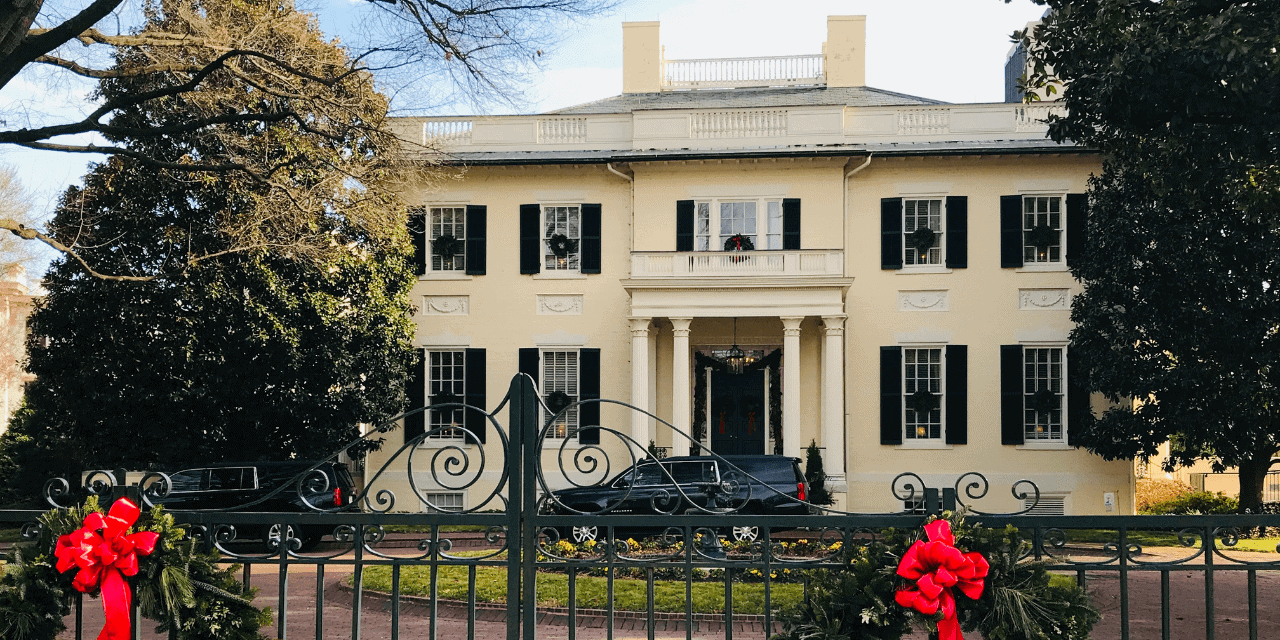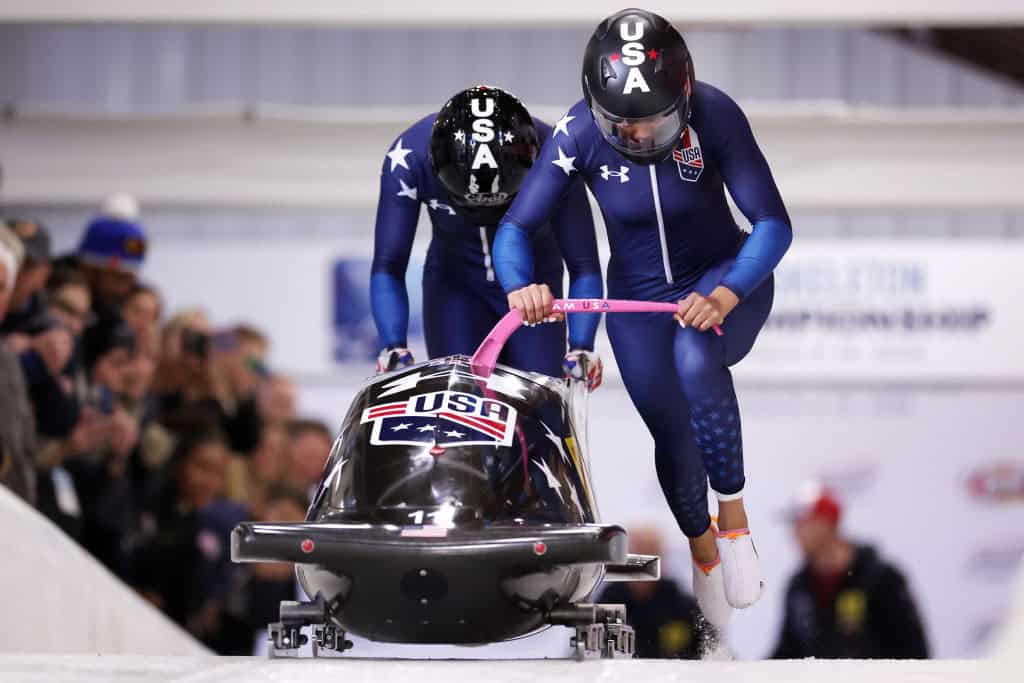Virginia politics have always had an effect on national events: a personal reflection

This year’s Virginia elections have brought back many memories of my previous life engaged in grassroots politics and campaigns in the Commonwealth, before relocating to Colorado for family and ministry.
In my twenties I worked campaigns, including one for the United States Senate, and in my thirties, I organized grassroots get out the vote and voter education programs, and in my early 40s I did online voter education.
Even before my professional career, I followed politics closely, watching the governor’s mansion change occupants, and parties, during my childhood and adolescence. I recall my journalist first cousin, who was an adult way ahead of me, talking about being assigned to follow gubernatorial candidate “Howlin” Henry Howell around the state during a race for governor in early the seventies. My cousin could make a scenario come alive as he told the story.
As a schoolboy, I placed runner-up in a county-wide essay contest, admittedly not a big feat, but my paper, entitled “Virginia’s Nicknames,” described the many monikers placed on Virginia over the years: the Mother of Presidents (eight Virginia born presidents), the Mother of States (once encompassing parts of Ohio, Kentucky, Indiana, Illinois, Wisconsin, and all of West Virginia, for example), the Old Dominion, and so on.
Suffice it to say, my civic, historical, and political interest in my home state has always been strong.
Party Politics
This year, all three top offices of state government changing party hands, as well as the House of Delegates, which will bring a new Speaker also. The results showed an eleven-percentage point swing between parties since the presidential election twelve months ago.
Conservatives are jubilant and promising national ramifications, a sentiment echoed in angst by the Democrat vice president. That remains to be seen, of course, but that same trend certainly was the case in 1993 and 2009, both years seeing gubernatorial wins by Republicans follow Democrat presidential wins the previous year, followed by Republicans recapturing control of congress.
Party control of the governor’s office, formerly occupied by national legends such as Thomas Jefferson, James Monroe (twice), and Patrick Henry, has changed hands often since the seventies. Before that, control was in Democrat hands both in the governor’s office and the legislature, since the days of Jefferson. Through slavery and secession, the creation of Confederate monuments, into Jim Crow, and “massive resistance” (to racial integration in the public schools), Democrats were in control.
Then, after residence in the governor’s mansion went Republican again in 1993, followed by almost two decades of Republican dominance of the oldest continually meeting legislature in the world, Democrats took back legislative control two years ago.
Gaffe Politics
Democrat fortunes turned negative this year on a public comment by candidate and former Governor Terry McAuliffe, a New York transplant closely associated with the Clintons. During a debate he said, “I don’t think parents should be telling schools what they should teach.”
This enraged parents in the northern Virginia suburbs, fueled the “mama bear” movement, lowered his vote totals in rural Virginia, and proved to be the death knell to his hopes – and elected challenger and businessman Glenn Younkin.
Exit polls showed that the two top issues for Virginia voters in 2021 were the economy and education, which mirrored a surprising survey taken by the Christian Coalition way back in 1993, which we called a “Survey of Churchgoing Americans.” We were quite surprised to see that social issues, even abortion, showed up lower in the concerns of those who went to church.
Interestingly, there was a somewhat similar dynamic to McAuliffe’s “parents” comment back in 2006, as sitting U. S. Senator and (another) former Governor George Allen uttered “macaca” toward a heckler during an event, the heckler having followed him from place to place. The term was a slang word he’d heard at home growing up and was considered by many to be an ethnic slur. The incident was pounced on by opponents and the media, derailing Allen’s re-election bid, and ending his much-anticipated national hopes. His loss also hampered the two-decade long coattails from his upset win for governor in 1993. Democrats have won every election for the U. S. Senate since and all but one race for governor – until now.
Power Politics
2021 also continued a disturbing trend in Virginia – a strong power shift from the Capital city of Richmond to the densely populated region of Northern Virginia, on the edge of the Washington, DC “beltway.” The voter rich northern Virginian area, full of transplants from other states, has been the elephant in the room (no pun intended) in statewide elections for over a decade – with the piedmont, mountain, and southside regions held mostly at bay.
This year, both candidates lived in suburban Washington, DC, and both even held their election night celebrations there.
In my days of working politics in Virginia, there was a rush each year to secure the ballroom at the downtown Richmond Marriott, with the other camp going to the historic Jefferson Hotel a few blocks away, regardless of where the candidates themselves lived. This new dynamic leaves the Capital city as an afterthought and attentions increasingly swallowed by the “swamp” of DC.
Southwestern Virginian voters had more sway this year with Mr. Youngkin’s portion of the vote growing strongly there, yet the lion’s share of his “increase” was still attributed to gains in the northern Virginia counties of Loudoun and Fairfax, along with one suburban county near Richmond, Chesterfield. Pundits and party officials knew that if Youngkin were trending ahead of past results in those areas, including Virginia Beach, his statewide success would be bright.
Likewise, I recall as a young operative, conducting exit polls at precincts in a Virginia state senate race. We knew that if our candidate won the historically reliable precincts of Kings Grant, Linkhorn, and Red Wing, he likely would win the election – and he did.
Racial Politics
In 1988, I served as personal aide for Dr. Maurice Dawkins, an African American former minister who won the GOP nomination for U. S. Senate, facing yet another former governor, Democrat Charles Robb, son-in-law of President Lyndon Johnson. Dawkins was a first-time candidate, Virginia’s second ever Black candidate to run for state-wide office and the first for federal office. Dawkins had marched with Dr. Martin Luther King in the 1960s but that held no comparison to his opponent’s familial relation to LBJ.
Looking back, Dr. Dawkins (as I called him as we crisscrossed the Commonwealth together from campaign stop to campaign stop) was not a great candidate that year, but he certainly was the best candidate who threw his hat in the ring, as none of the top Republicans dared challenge the popular Robb.
I well recall Dawkins’ speech to the annual Virginia NAACP convention, when he expressed to no avail, “My opponent comes to the NAACP asking for your votes. The day I was born, I was a member of the NAACP.” I also recall once stopping for a late-night dinner at the only restaurant open on the drive from Roanoke northward to his home in Arlington County, a truck stop. We walked in wearing our customary business suits, white shirts, and neckties, his wife wearing a white fur coat. She observed that she had never eaten in a truck stop and inquired as to whether it was a new experience for me. “Well, ma’am,” I said, “my father is a truck driver,” so, yes, I was in quite familiar surroundings.
On Election Day, Dawkins was rejected both by the majority of his party’s voters and his fellow African Americans, getting only 29 percent of the total vote and 12 percent of the Black vote. I still recall departing the Richmond Marriott the morning after the election when he noted that over 300,000 Virginians “liked what (he) had to say.” He had found that silver lining to the loss. He soon slipped quietly into retirement, as I looked for my next campaign.
Last Tuesday evening, while watching the returns on television and monitoring several websites which were totaling votes, I thought of Dr. Dawkins, and how pleased he would have been for Winsome Sears, a Jamaican immigrant, a Marine, and mother, a fellow Black American, to be elected as Virginia’s lieutenant governor, the first woman of color, and first woman period, in that post.
The attorney general’s office will also be held by a minority, as Jason Miyares, son of a Cuban immigrant, was elected in the conservative sweep.
Unfortunately, both Sears and Miyares were ignored the next day when national groups left them out of election recaps about minority advances nationwide. As I saw with Dr. Dawkins in the eighties, minority office seekers are not all judged equally.
Future Politics
Going forward in Virginia, the dynamics are pretty clear: a pattern of transitions in party control, an even stronger trend to move the power structure from Richmond to the Washington suburbs, more influence politically among suburban mothers and families, and great advances for minorities. I truly hope that another nail has been firmly placed in the coffin of racism, in what was once the capital of the Confederacy.
And as a life-long Virginian, one must wonder, we always wonder, when the Mother of Presidents will be expecting again.
Photo from Shutterstock.
ABOUT THE AUTHOR

Joel Vaughan is Chief of Staff for Focus on the Family. Before joining the ministry in 2003, he served as vice president of a political advertising firm in Washington, D.C., and spent nine years in various positions at the Christian Coalition. He holds a Master’s degree in biblical studies and an undergraduate degree in economics and business. Joel has served overseas with Mercy Ships and as a volunteer jail chaplain. He has lectured on grassroots politics at the university level and appeared on various radio talk shows. Joel is author of the book The Rise and Fall of the Christian Coalition: The Inside Story.
Related Posts

The Refreshing Patriotism of Olympian Jasmine Jones
February 13, 2026

Colorado Committee Kills ‘Children Are Not for Sale Bill’
February 13, 2026

Washington School District Buries Female Wrestler’s Sexual Assault Complaint Against Male Opponent
February 12, 2026

“Who Am I?”: James Van Der Beek’s Final Answer
February 12, 2026
